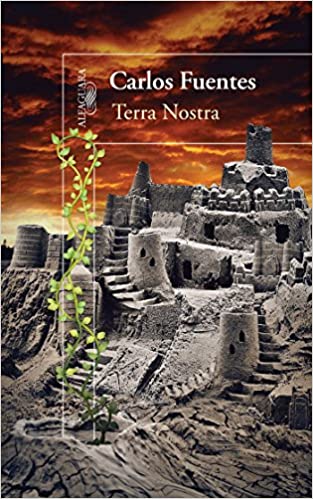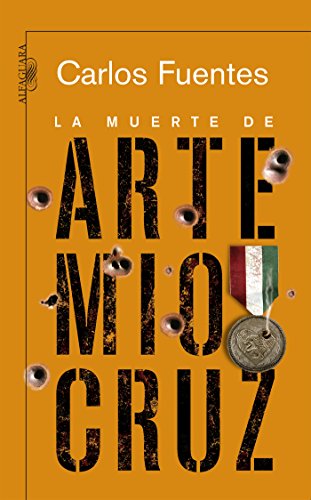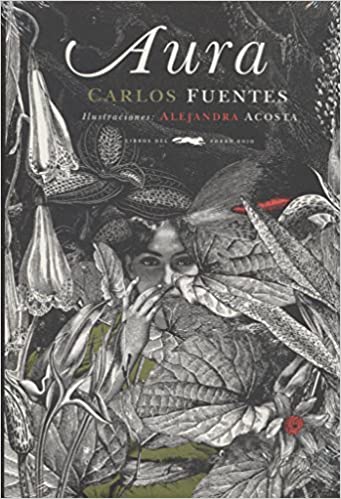Cradle traveler in his capacity as the son of a diplomat, Carlos Fuentes He acquired the virtue of being traveled, a wonderful tool for the thriving writer. Traveling offers an incomparable wealth of perspectives on the world, of learning against ethnocentrism, of popular wisdom. The author's privileged childhood was used to the maximum by him to end up becoming above all a great writer, as well as a renowned diplomat like his father.
As a trained writer and as a person in contact with diverse realities of his inexhaustible traveling spirit, Fuentes became a sociological novelist, with an almost anthropological search for the human being in his natural social environment.
It is not that his novels are a brainy attempt at pedagogical intention, but both his characters and his approaches always reveal a clear intention, the search for answers in history. Much remains to be learned from everything in the past, from all historical processes, from revolutions and wars, from crises, from great social conquests, the residue of history is a narrative that was nurtured Carlos Fuentes to propose his novels to us.
Logically, as a Mexican, the particularities of his homeland also stand out in many of his books. The idiosyncrasy of a people like the Mexican brings a lot of shine to its paradoxes, weighed down by an intention of a people with a strong differential identity despite the miscegenation that ended up building it (like all the peoples of the world, on the other hand)
Su friendship with Gabriel García Márquez it would be worthy of a movie. Two of the greatest Latin American literary creators, feeding back each other to foster their genius ability ...
Selection of novels by Carlos Fuentes
Our land
Let's start at the beginning, get to Pangea, look at a world divided into mass of water and mass of land, each component forming a compact unit. There, this house our so-called Earth began to be built, despite the fact that we had not been given the keys yet.
We know myths of those times, echoes that no human heard. Then came the noise of our species settling on the planet. And nothing was ever the same again, despite the expiration of our deadline, we too become just an echo lost in a black hole.
Summary: Terra nostra, the most ambitious and complex novel by Carlos Fuentes, is undoubtedly one of the fundamental titles of contemporary Hispanic narrative. A language in constant ignition, creates, destroys and reinvents the critical machinery of the fable: from the remote silence of the world of cosmogonic myths to the moldy and screeching night of shackles and ruffs of the Spain of the Habsburgs.
Terra nostra is a vast journey through time that goes back to the Spain of the Catholic Monarchs to reveal the exercise of power transplanted to the colonies; that of Felipe II, the Spanish absolutism of the Habsburgs, the mechanism and vertical structures of power in Spanish America, in short.
And it is also a text that criticizes the very notion of the story. In the history of the novel it represents a borderline case: epiphany and foundation. «Terra nostra is history seen through the eyes of a novelist, with all the resources of the literary imagination at his disposal.
The death of Artemio Cruz
Old age is a neuronal revolution, as opposed to the hormonal revolution of early youth. The portrait of the old Artemio Cruz brings order to disorder, and yet respects the chaos and the close feeling of the greatest loss: the one that takes your own life.
A lucid and stark tale that exudes humanity in its broadest concept, from the mechanics of the steps to the falls into the wells of dreams.
Summary: The last moments of the life of a powerful man, a revolutionary soldier, a lover without love, a father without a family ... a man who betrayed his companions, but who could not bear the wounds inflicted by fate.
Carlos Fuentes reveals to us the mental processes of an old man who is no longer capable of fending for himself and who is prostrate before imminent and unworthy death, but his will - which has given him an outstanding position in society - resists to be defeated.
Using a brilliant narrative technique, which brings together in a single text the conscious, the subconscious and the objective narration, the past, the present and the future, Fuentes leads us through the bowels of the Revolution, the Mexican political system and the idiosyncrasy of the ruling classes.
Aura
History is recorded in those that remain when one passes away. The memories of the beings that have left can become stronger and more vital in those that were left inhabiting the same four walls.
A young historian decides to fulfill a well-paid assignment, but the transcription commissioned on a historical figure ends up leading to a much greater knowledge of the ultimate truth of history.
Summary: The story begins when Felipe Montero, an intelligent and lonely young historian who works as a teacher with a very low salary, finds in the newspaper an advertisement requesting a professional of his qualities for a job with a very good salary.
The job, at 815 Donceles Street, consists of organizing and writing the memoirs of a French colonel and translating them into Spanish so that they can be published. The colonel's widow, Consuelo Llorente, and her niece Aura live in this house.
The novel takes place around Aura, owner of impressive green eyes and great beauty, and her strange relationship with her old aunt. Felipe falls in love with Aura and wants to take her from there because he thinks that Aura cannot make her life for Consuelo who has her trapped. Upon entering the photographs and writings of the colonel and the widow, Felipe loses his sense of reality and finds a truth that surpasses fantasy and love.



